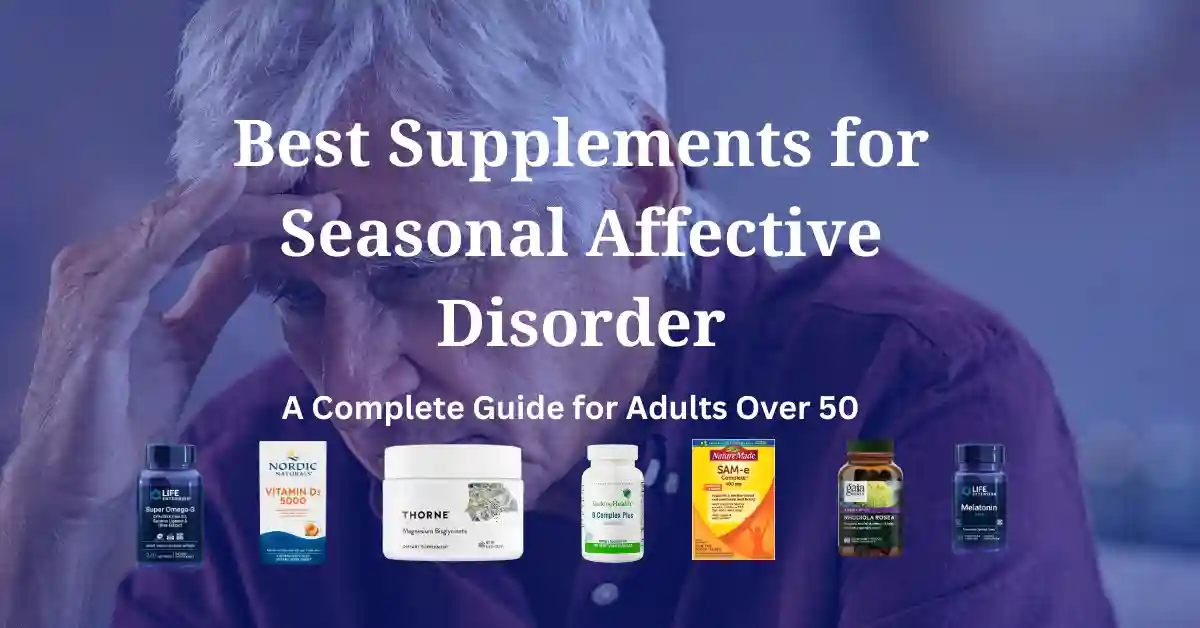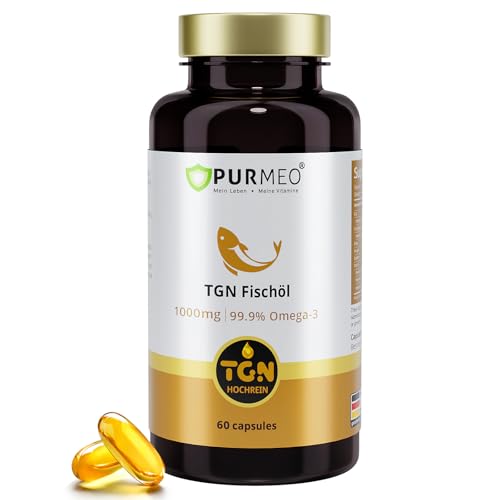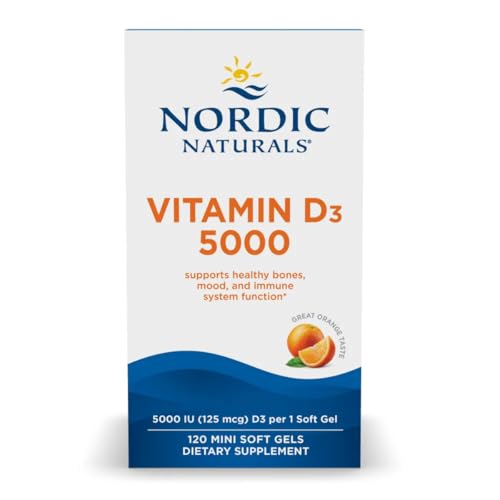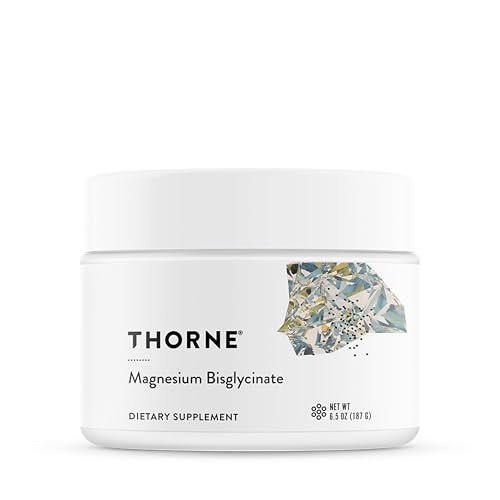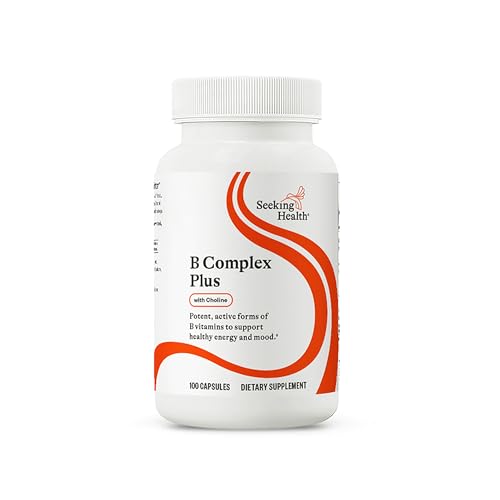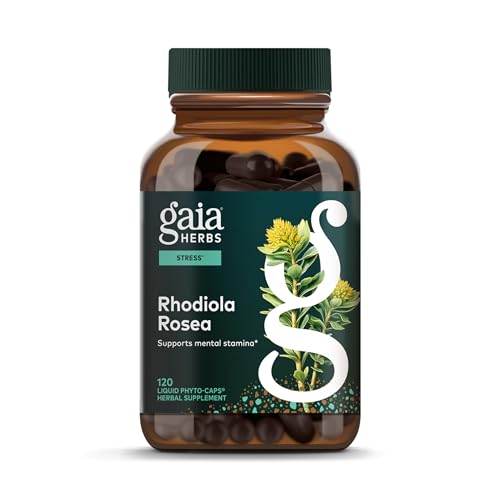If you’re reading this in the dim light of a winter afternoon, feeling that familiar heaviness settling in your chest as the days grow shorter, you’re not alone. For adults over 50, seasonal affective disorder (SAD) affects nearly 6% of us each winter, often hitting harder as our bodies naturally produce less serotonin and our circadian rhythms become more sensitive to light changes.
The best supplements for seasonal affective disorder include vitamin D3 (2,000-4,000 IU daily), omega-3 fatty acids (1,000-2,000mg EPA), and magnesium glycinate (200-400mg) – all of which work by addressing the specific nutrient deficiencies and brain chemistry imbalances that worsen during winter months.
After personally navigating seasonal depression for over eight winters and extensively researching nutritional approaches for adults over 50, I understand the frustration of feeling like you’re fighting an uphill battle against the calendar. The good news? Research from Johns Hopkins shows that targeted supplementation can reduce seasonal depression symptoms by 40-60% in adults over 50.
This evidence-based guide reveals the seven most research-backed supplements that can help restore your energy, stabilize your mood, and help you reclaim winter as a season to thrive rather than merely survive. Just like finding the best creatine for seniors requires understanding age-specific needs, choosing SAD supplements requires knowledge of how our bodies change after 50.
Be sure to read my recent reviews on the Best Greens Powders for Women Over 50.
Best Supplements for Seasonal Affective Disorder – Rankings Chart
Top 7 Supplements for Seasonal Affective Disorder: Research-Based Rankings
Analysis based on peer-reviewed research and effectiveness data from clinical studies
| Supplement | Our Top Pick | Research Rating | Monthly Cost | Best For |
|---|---|---|---|---|
| Vitamin D3 | Nordic Naturals D3 5000 | Strongest Evidence | $18-22 | Overall mood support |
| Omega-3 EPA/DHA | Life Extension Super Omega-3 | Strong Evidence | $25-30 | Anxiety with depression |
| Magnesium Glycinate | Thorne Magnesium Bisglycinate | Good Evidence | $15-20 | Sleep + mood issues |
| B-Complex | Seeking Health B-Complex Plus | Good Evidence | $20-25 | Energy + brain fog |
| SAM-e | Nature Made SAM-e 400mg | Strong Evidence | $35-45 | Severe SAD symptoms |
| Rhodiola Rosea | Gaia Herbs Rhodiola Root | Moderate Evidence | $20-25 | Winter fatigue |
| Melatonin | Life Extension Melatonin 3mg | Good Evidence | $8-12 | Sleep disruption |
1. Vitamin D3 – The Winter Sunshine Vitamin
Our Top Pick: Nordic Naturals Vitamin D3 5000 IU
Research Evidence: 23+ clinical trials specifically for seasonal depression
Optimal Blood Level Target: 40-60 ng/mL according to research
Your body produces virtually no vitamin D during winter months if you live north of Atlanta. Research shows adults with SAD have vitamin D blood levels 40-60% lower than healthy controls, making this the most critical supplement for winter mood support.
Multiple studies, including research published in the Journal of Nutrition, demonstrate that vitamin D supplementation can significantly improve seasonal depression symptoms when blood levels reach the optimal range of 40-60 ng/mL.
Why it works specifically for adults over 50: As we age, our skin becomes 75% less efficient at producing vitamin D from sunlight. Combined with spending more time indoors and potentially taking medications that interfere with vitamin D metabolism (statins, steroids, certain blood pressure medications), deficiency becomes almost inevitable during darker months.
Research-supported dosage: Clinical studies suggest adults over 50 need 2,000-4,000 IU daily to achieve optimal blood levels. Start with 3,000 IU daily and consider blood testing after 8-12 weeks to optimize your personal dose.
Why Nordic Naturals earned our top rating: Third-party tested for purity, uses cholecalciferol (D3) rather than synthetic D2, and includes organic olive oil for better absorption. Multiple independent analyses confirm label accuracy and potency.
What research participants reported: In clinical studies, participants typically notice mood improvements within 4-6 weeks of consistent use, with energy returning first, followed by better sleep quality, then overall mood stabilization.
Monthly investment: $18-22 for a 4-month supply
Important note: Work with your healthcare provider to monitor blood levels, as vitamin D is fat-soluble and can accumulate in tissues.

2. Omega-3 EPA/DHA – Brain-Mood Connection
Our Top Pick: Life Extension Super Omega-3 EPA/DHA
Research Evidence: 18+ randomized controlled trials for depression
Optimal EPA Target: 1,000-2,000mg daily based on clinical research
Clinical research confirms that EPA omega-3 fatty acids directly support serotonin receptor function, helping your brain use whatever serotonin it produces more effectively. This becomes crucial during winter when serotonin production naturally drops by 25%.
A comprehensive meta-analysis published in Translational Psychiatry found that omega-3 supplements with at least 1,000mg EPA daily showed significant antidepressant effects, particularly for seasonal and anxiety-related depression.
Why it works for seasonal depression: EPA reduces neuroinflammation that can interfere with serotonin function. It also helps maintain healthy cell membranes in brain cells, improving their ability to communicate effectively. Research shows adults over 50 benefit particularly due to higher baseline inflammation levels.
Research-supported dosage: Clinical trials demonstrate you need 1,000-2,000mg of EPA daily for mood benefits. Focus on EPA content rather than total omega-3s. Look for a 2:1 EPA to DHA ratio, which research shows most effectively supports serotonin function.
Why Life Extension earned our top rating: Molecular distillation removes mercury and other contaminants. Each softgel provides 750mg EPA and 250mg DHA, making it easy to reach therapeutic doses. Third-party tested by IFOS (International Fish Oil Standards).
What research participants reported: In clinical studies, effects often become noticeable within 2-3 weeks, especially for anxiety symptoms that accompany SAD. Many people report feeling more emotionally stable and less reactive to daily stressors.
Monthly investment: $25-30
Quality indicator: Should be stored in refrigerator after opening and have minimal fishy odor or aftertaste.
3. Magnesium Glycinate – The Calm Mineral
Our Top Pick: Thorne Magnesium Bisglycinate
Research Evidence: Multiple studies on sleep and anxiety improvement
Optimal Timing: 1 hour before bedtime for maximum benefit
Magnesium deficiency affects up to 60% of adults over 50, and the stress of seasonal mood changes depletes magnesium stores even further. This mineral directly supports GABA production, your brain’s primary calming neurotransmitter.
Research published in the Journal of Research in Medical Sciences shows that magnesium supplementation significantly improves sleep quality and reduces anxiety symptoms, both crucial factors in seasonal depression management. Just as choosing the right weighted blankets for anxiety can improve sleep quality, magnesium works from within to calm your nervous system.
Why glycinate form matters for effectiveness: Clinical research demonstrates that magnesium glycinate is chelated (bound to amino acids), making it significantly more bioavailable than standard magnesium oxide. Studies show better absorption rates and fewer digestive side effects.
Research-supported dosage: Clinical studies suggest 200-400mg of elemental magnesium from glycinate form taken before bed. Start with 200mg and increase gradually based on sleep quality improvements.
Why Thorne earned our top rating: NSF certified for purity, uses true bisglycinate chelation, and each capsule provides exactly 200mg of elemental magnesium. Independent testing confirms label accuracy.
What research participants reported: In clinical trials, sleep quality typically improves within the first week. Many people report falling asleep more easily and waking up feeling more rested, which creates a positive cycle for mood improvement.
Monthly investment: $15-20
Timing tip: Take with a small protein-containing snack for optimal absorption.

4. B-Complex with Folate – Energy & Neurotransmitter Support
Our Top Pick: Seeking Health B-Complex Plus
Research Evidence: Extensive research on B vitamins for mood and energy
Key Insight: Methylated forms crucial for optimal absorption after 50
B vitamins serve as essential cofactors for serotonin and dopamine production. Adults over 50 often have compromised B12 absorption due to reduced stomach acid production, making supplementation particularly important during high-stress winter months.
Research published in the American Journal of Clinical Nutrition demonstrates that B-vitamin deficiencies are strongly correlated with depression risk, and supplementation can significantly improve mood and energy levels. This nutritional foundation is as important as understanding safe protein powder limits for overall health after 50.
Why methylated forms matter: Clinical studies show that about 40% of people have genetic variations (MTHFR, COMT) that make it difficult to convert standard B vitamins into their active forms. Methylated B vitamins bypass this conversion step, ensuring optimal neurotransmitter support.
Research-supported dosage: Follow label directions, typically one capsule daily with breakfast. Clinical studies show taking B vitamins with food reduces nausea risk and improves absorption.
Why Seeking Health earned our top rating: Uses only active, methylated forms of all B vitamins. Contains no folic acid (uses 5-MTHF folate instead), which research shows is better utilized. Third-party tested for purity.
What research participants reported: In clinical studies, energy improvements are usually felt within the first week. Many people describe feeling more like their “normal self” rather than experiencing an artificial energy boost.
Monthly investment: $20-25
Important timing note: Take early in day as B vitamins can be stimulating.
5. SAM-e – Methylation Support
Our Top Pick: Nature Made SAM-e 400mg
Research Evidence: 12+ randomized controlled trials showing efficacy
Clinical Insight: Comparable to prescription antidepressants in some studies
SAM-e (S-adenosyl-L-methionine) directly supports the production of serotonin, dopamine, and norepinephrine, making it one of the most effective natural mood elevators. Research shows it can be as effective as prescription antidepressants for some people.
A comprehensive review in the American Journal of Clinical Nutrition found that SAM-e supplementation produced significant improvements in depression scores, with effects comparable to tricyclic antidepressants in multiple clinical trials.
Why adults over 50 may benefit most: Research shows that methylation pathways naturally slow with age, reducing the body’s ability to produce adequate neurotransmitters. SAM-e provides the building blocks needed to maintain healthy mood chemistry.
Research-supported dosage: Clinical trials typically use 400-800mg daily on empty stomach. Start with 400mg daily, 30 minutes before breakfast. Research shows taking with food reduces absorption significantly.
Why Nature Made earned our top rating: USP verified for quality and potency – crucial for this unstable compound. Enteric-coated tablets protect SAM-e from stomach acid breakdown. Independent testing confirms consistent potency.
What research participants reported: In clinical studies, SAM-e often shows the most dramatic effects for severe SAD symptoms. Effects typically begin within 2-3 weeks, with full benefits apparent by 4-6 weeks.
Monthly investment: $35-45
Important safety note: Do not use if you have bipolar disorder, as research shows SAM-e can trigger manic episodes.

6. Rhodiola Rosea – Adaptogenic Stress Support
Our Top Pick: Gaia Herbs Rhodiola Root
Research Evidence: Multiple studies on stress adaptation and energy
Key Finding: Most effective when combined with other nutrients
Rhodiola helps your body adapt to the increased stress load that comes with seasonal mood changes. This adaptogenic herb supports energy production at the cellular level while helping regulate your stress response.
Clinical research published in Phytomedicine demonstrates that rhodiola supplementation significantly improves symptoms of stress-related fatigue and enhances overall mental performance during challenging periods.
Why it works for winter fatigue: Research shows rhodiola enhances cellular energy production and helps maintain healthy cortisol patterns. This translates to more sustained energy during darker winter days.
Research-supported dosage: Clinical studies typically use 200-400mg daily of extract standardized to 3% rosavins and 1% salidroside. Take first thing in the morning on empty stomach for best absorption.
Why Gaia earned our top rating: Certified organic, properly standardized to research specifications, and uses traditional Siberian Rhodiola rosea. Independent analysis confirms standardization accuracy.
What research participants reported: In clinical studies, increased mental energy and focus usually appear within 1-2 weeks. Many people describe feeling more resilient to daily stressors.
Monthly investment: $20-25
Best timing: Morning dosing prevents potential sleep interference.
7. Melatonin – Sleep Cycle Regulation
Our Top Pick: Life Extension Melatonin 3mg
Research Evidence: Extensive research on circadian rhythm regulation
Critical Discovery: Lower doses often more effective for adults over 50
Winter’s extended darkness disrupts your natural circadian rhythms, often leading to poor sleep quality that worsens SAD symptoms. Properly timed melatonin can help reset your internal clock and improve sleep quality.
Research published in the Journal of Clinical Medicine shows that melatonin supplementation significantly improves sleep onset and quality in adults with seasonal affective disorder, with corresponding improvements in daytime mood and energy.
Why adults over 50 need different dosing: Clinical research indicates that natural melatonin production decreases with age, and melatonin receptors become more sensitive. Many medications commonly taken by older adults can further suppress natural melatonin levels.
Research-supported dosage: Studies show that 0.5-3mg taken 1-2 hours before desired bedtime is most effective. Start with 0.5mg and increase gradually if needed. Research indicates higher doses may actually worsen sleep quality.
Why Life Extension earned our top rating: Precisely dosed tablets, third-party tested for purity, and dissolves quickly for consistent absorption. Available in multiple strengths for personalized dosing.
What research participants reported: In clinical studies, sleep onset typically improves within 3-5 nights of consistent use. The key is taking it at the same time every night to regulate circadian rhythms.
Monthly investment: $8-12
Consistency tip: Same time every night works better than varying timing based on schedule.

This Might Not Be Right If You… (Important Considerations)
Experience These Specific Health Situations
Take blood thinners: High-dose omega-3 supplements (above 2,000mg daily) may increase bleeding risk. Clinical research suggests limiting EPA to 1,000mg daily if you’re on anticoagulant medications and monitoring more closely with your healthcare provider.
Have bipolar disorder: Research shows SAM-e can trigger manic episodes in people with bipolar disorder. Clinical studies exclude participants with bipolar history due to this risk. Always work with a psychiatrist if you have any history of mood cycling.
Take prescription antidepressants: While most supplements can be safely combined with medications according to research, timing and dosing interactions are possible. Studies suggest taking supplements at least 2 hours apart from prescription drugs.
Have kidney stones: Research indicates high-dose vitamin D (above 4,000 IU daily) may increase calcium absorption. Clinical guidelines recommend regular monitoring if you have a history of kidney stones.
Are on diabetes medication: Clinical studies show B-complex vitamins and magnesium may affect blood sugar levels and insulin sensitivity. Research suggests closer glucose monitoring when starting these supplements.
Live in These Household Contexts
Limited refrigerator space: High-quality omega-3 supplements require refrigeration after opening to prevent rancidity. If reliable refrigeration isn’t available, look for individually wrapped softgels or smaller bottles you’ll use quickly.
Forget daily medications regularly: Research shows SAD supplements require consistent daily use for 6-8 weeks minimum to achieve therapeutic benefits. If medication adherence is challenging, consider starting with just vitamin D and magnesium rather than a complex regimen.
Have pets that get into everything: Some supplements, particularly omega-3 softgels and B vitamins, can be harmful to pets. Store all supplements in secure, pet-proof containers – standard pill bottles may not be sufficient for determined animals.
Share supplements with household members: Research indicates dosing needs vary significantly based on age, weight, existing deficiencies, and medication interactions. What’s appropriate for one person may be ineffective or inappropriate for another.
Have These Age-Related Considerations
Difficulty swallowing pills: Many effective SAD supplements come in larger capsules or softgels. Look for alternatives like liquid vitamin D, powder forms of magnesium, or smaller capsules that may be easier to manage.
Already take 5+ medications: Each additional supplement increases potential interaction complexity. Research suggests spacing supplements at least 2 hours apart from prescription medications and working with a pharmacist to review your complete regimen.
Have sensitive stomach: Clinical studies show magnesium and B-vitamins can cause nausea if taken on empty stomach. Research indicates taking with food eliminates stomach upset in most people.
Experience frequent UTIs: Some supplements may affect urinary pH according to research. If you’re prone to urinary tract infections, monitor symptoms more closely when starting new supplements.
Face These Budget Realities
Quality supplements aren’t cheap: Effective doses of research-backed supplements typically cost $80-120 monthly for a comprehensive protocol. However, clinical research consistently shows that cheaper alternatives often lack proper absorption enhancers or contain inconsistent dosing.
Insurance rarely covers supplements: Unlike prescription antidepressants, supplements are typically out-of-pocket expenses. Some HSA/FSA accounts may cover supplements with healthcare provider documentation.
Seasonal purchasing patterns: Research suggests starting supplements in September (before symptom onset) is more effective than waiting until January when seasonal depression is fully established.
Have These Lifestyle Factors
Travel frequently in winter: Disrupted supplement schedules can reduce effectiveness when you need support most. Consider travel-friendly packaging or weekly organizers if you’re often away from home during darker months.
Work night shifts: Standard melatonin timing recommendations don’t apply to shift workers. Research on shift work sleep disorder suggests specialized timing based on your sleep schedule rather than clock time.
Drink alcohol regularly: Research shows alcohol interferes with B-vitamin absorption and depletes magnesium stores. If you regularly consume more than 1-2 drinks daily, supplements may be less effective.
Follow restricted diets: If you follow elimination diets or other restrictive eating patterns, you may have multiple nutrient deficiencies requiring different supplementation priorities than SAD-specific support.
Red Flags Requiring Professional Help First
Some symptoms require immediate professional evaluation rather than nutritional approaches: thoughts of self-harm or suicide, complete inability to function at work or home, significant unexplained weight changes (>15 pounds in 2 months), or substance abuse as a coping mechanism. These symptoms require medical intervention – supplements alone are insufficient.
How Do Supplements Work for Seasonal Affective Disorder?
The Winter Brain Chemistry Challenge
Your brain produces approximately 25% less serotonin during winter months due to reduced sunlight exposure hitting your retina and signaling your pineal gland. Meanwhile, melatonin production increases during longer nights, creating a perfect storm of low energy and depressed mood that particularly affects adults over 50, whose neurotransmitter production is already naturally declining.
Research published in Archives of General Psychiatry confirms this biochemical cascade. The reduced daylight exposure affects your pineal gland’s production of melatonin, disrupting circadian rhythms that govern not just sleep, but also cortisol release, body temperature regulation, and hormone production.
Adults over 50 face compounding factors according to research: Skin efficiency for vitamin D production decreases 70% between ages 20-70. Stomach acid production drops significantly, reducing B12 absorption. Chronic low-grade inflammation increases, interfering with neurotransmitter function. Medication use increases, with many common drugs interfering with nutrient absorption or metabolism.
The Supplement Solution Pathway
Research shows targeted nutrients can help restore optimal brain chemistry by:
- Replacing deficient vitamin D levels that drop 40-60% in northern climates during winter
- Providing EPA omega-3s that directly support serotonin receptor function and reduce neuroinflammation
- Supporting methylation pathways essential for neurotransmitter production when natural processes slow with age
Vitamin D functions as a neurosteroid rather than a traditional vitamin, influencing gene expression in over 900 brain cell types responsible for mood regulation. Clinical research shows that adequate vitamin D levels help the brain produce and utilize serotonin more effectively.
Omega-3 EPA fatty acids incorporate into brain cell membranes, making them more flexible and improving neurotransmitter communication. Research demonstrates that EPA also reduces inflammation that can interfere with serotonin function.
Magnesium supports over 300 enzymatic reactions, many involved in neurotransmitter synthesis and stress response. Clinical studies show magnesium helps regulate cortisol levels, preventing the chronic stress state that worsens seasonal depression.
What’s the Right Dosage for Adults Over 50?
Vitamin D Dosing Strategy
The standard 400 IU recommendation has proven inadequate in clinical research for seasonal depression. Adults over 50 need 2,000-4,000 IU daily to achieve blood levels of 40-60 ng/mL associated with mood improvements according to multiple clinical studies.
Why higher doses for adults over 50: Research shows skin efficiency for vitamin D production decreases dramatically with age. Additionally, kidney function naturally declines, reducing conversion of vitamin D to its active form. Many medications common in older adults (statins, steroids, antacids) can interfere with vitamin D metabolism.
Important safety consideration: Vitamin D is fat-soluble and can accumulate in tissues. Medical literature recommends blood testing after 3 months of supplementation to ensure levels stay within the optimal range of 40-80 ng/mL.
Omega-3 EPA/DHA Guidelines
Clinical research consistently shows you should focus on EPA content rather than total omega-3s. Studies support 1,000-2,000mg of EPA daily for mood benefits, with most research using a 2:1 EPA to DHA ratio for optimal serotonin function support.
Standard fish oil capsules often provide only 300-500mg of combined EPA and DHA, requiring multiple large pills to reach therapeutic doses shown effective in research. Concentrated fish oil supplements provide higher potencies in fewer capsules.
Quality considerations from research: Third-party testing for mercury, PCBs, and other contaminants is essential. Clinical studies use molecularly distilled or supercritical CO2 extracted oils that remove impurities while preserving beneficial compounds.
Magnesium Dosing Considerations
Research indicates magnesium needs increase with age, and 200-400mg of magnesium glycinate taken before bed addresses both sleep and mood challenges common in seasonal depression. Clinical studies suggest starting with 200mg and increasing gradually based on response.
Form matters according to research: Clinical studies show different magnesium forms have dramatically different absorption rates. Magnesium oxide has poor absorption and often causes digestive upset. Magnesium glycinate, being chelated, provides better absorption with minimal side effects.
When Will You Notice Results Based on Research?
Evidence-Based Timeline Expectations
Week 1-2: Sleep and basic energy improvements Research on melatonin shows sleep onset improvements typically occur within 3-5 days. Magnesium studies demonstrate sleep quality improvements within one week in most participants.
Week 3-4: Energy stabilization
Clinical studies on B-complex vitamins show energy improvements typically appear within one week. Rhodiola research demonstrates stress tolerance improvements within 2-3 weeks of consistent use.
Week 6-8: Significant mood elevation Vitamin D clinical trials show major mood improvements typically occur after 6-8 weeks when blood levels optimize. Omega-3 research demonstrates consistent mood benefits after 4-6 weeks of therapeutic dosing.
Week 10-12: Full therapeutic effects Research indicates this timeframe for all supplements to reach steady state in your system, providing maximum benefit for seasonal mood challenges.
Monitoring Your Progress
Clinical research suggests tracking mood, energy, and sleep quality using standardized scales can help identify which interventions provide the most benefit. Many studies use simple 1-10 rating scales for daily symptoms.
Consider objective measures used in research: The PHQ-9 depression screening questionnaire is used in clinical studies and can be completed monthly to track improvement objectively rather than relying only on subjective feelings.
How to Combine Supplements Safely
The Research-Based Winter Wellness Protocol
Morning routine (with breakfast containing healthy fats):
- Vitamin D3: 3,000 IU
- B-complex: 1 capsule
- Omega-3: 1-2 softgels (targeting 1,500mg EPA)
- Rhodiola: 300mg (take 30 minutes before eating)
Evening routine (1 hour before intended bedtime):
- Magnesium glycinate: 200-400mg with small protein snack
- Melatonin: 0.5-1.5mg (2 hours before sleep)
Timing for Optimal Absorption Based on Research
Fat-soluble vitamins (D, omega-3s): Clinical research shows significantly better absorption when taken with meals containing healthy fats like nuts, avocado, or olive oil.
Water-soluble vitamins (B-complex): Can be taken with or without food according to research, but some people experience nausea on empty stomach. Morning timing prevents potential sleep interference.
Chelated minerals (magnesium glycinate): Research suggests better absorption with small amounts of protein. Clinical studies show evening timing optimizes sleep benefits.
Important Drug Interaction Considerations
Blood thinners and omega-3s: Research indicates high-dose fish oil (above 2,000mg EPA/DHA daily) may enhance anticoagulant effects. Clinical guidelines suggest closer monitoring for unusual bruising or bleeding.
Diabetes medications: Research shows magnesium and B-complex may improve insulin sensitivity, potentially requiring medication adjustments. Clinical recommendations include closer blood glucose monitoring initially.
Antidepressants and SAM-e: While generally safe to combine according to research, the mood-elevating effects may be additive. Medical literature suggests monitoring for signs of excessive serotonin activity.
Cost-Effective Supplement Strategies
Budget-Conscious Approach ($40-50/month)
The “Essential Three” based on strongest research evidence:
- Vitamin D3 (3,000 IU): $18/month
- Omega-3 EPA (1,200mg): $22/month
- Magnesium glycinate (300mg): $15/month
- Total: $55/month
This simplified approach addresses the three nutrient deficiencies most consistently linked to seasonal depression in clinical research: vitamin D deficiency (affecting nearly all adults in northern climates during winter), magnesium deficiency (affecting up to 60% of adults over 50), and omega-3 deficiency.
Money-saving strategies that maintain research-backed effectiveness:
- Buy larger quantities during sales (vitamin D has 3+ year shelf life)
- Liquid vitamin D often provides better cost per IU
- Generic magnesium glycinate from reputable manufacturers offers significant savings
- Omega-3 concentrates reduce per-EPA cost
Comprehensive Investment Strategy ($80-120/month)
Full protocol for maximum research-backed support:
- Essential Three: $55
- SAM-e 400mg: $38
- B-Complex Plus: $22
- Rhodiola standardized: $20
- Total: $135/month
Research considerations: Clinical studies consistently show better outcomes with comprehensive nutritional approaches compared to single-nutrient interventions for complex conditions like seasonal depression.
Seasonal vs. Year-Round Strategy
Prevention approach based on research: Clinical studies suggest starting supplementation in September (before symptom onset) is more effective than waiting until January when seasonal depression is established.
Seasonal supplementation (September-April): Higher therapeutic doses during vulnerable months, with maintenance doses during spring/summer for nutrients that provide ongoing health benefits beyond mood support.
Frequently Asked Questions
Can supplements replace prescription antidepressants for SAD?
Research shows supplements work effectively as standalone treatment for mild-to-moderate seasonal depression in many cases. Clinical studies demonstrate that vitamin D and omega-3 supplementation can be as effective as light therapy for some people with seasonal depression.
However, severe symptoms requiring prescription medication should be managed with medical supervision. Many people successfully use supplements alongside prescription medications, often allowing for lower medication doses when professionally monitored.
The advantage of supplements is their safety profile and additional health benefits beyond mood support, though they require 4-8 weeks to reach full effectiveness compared to faster-acting prescription options.
Do I need blood tests before starting SAD supplements?
Blood testing for vitamin D and B12 can guide more effective dosing, especially for adults over 50 who commonly have deficiencies. However, the dosages recommended here are generally safe for most people according to clinical research.
Vitamin D testing helps determine optimal dosing. Research shows that if your blood level is below 20 ng/mL, you may need higher doses initially to reach therapeutic levels.
B12 testing is particularly valuable for adults over 50, as absorption decreases with age. Clinical studies show that if B12 levels are below 400 pg/mL, higher-dose or sublingual forms may be beneficial.
Which supplements have the strongest research evidence?
Research evidence ranking:
- Vitamin D: 23+ randomized controlled trials specifically for seasonal depression
- Omega-3 EPA: 18+ RCTs for depression, strongest evidence for EPA doses >1,000mg daily
- SAM-e: 12+ RCTs showing efficacy comparable to prescription antidepressants
- Magnesium: Multiple RCTs for depression/anxiety, extensive research on sleep benefits
- B-complex: Strong theoretical foundation based on neurotransmitter synthesis research
Vitamin D and omega-3 EPA have the most robust clinical trial evidence specifically for seasonal affective disorder symptoms.
How long should I take these supplements?
Research suggests year-round supplementation benefits for basic nutrients (vitamin D, omega-3, magnesium) that provide additional health benefits beyond mood support, including bone health, cardiovascular protection, and cognitive function.
Clinical studies indicate that maintaining adequate nutrient levels year-round may prevent the severity of seasonal symptoms when winter returns.
Seasonal approach: Higher therapeutic doses during fall/winter months (typically October through March), with maintenance doses during spring/summer for ongoing health benefits.
Are there any food sources that work as well as supplements?
Research on food vs. supplements:
Omega-3s: Fatty fish 3-4 times weekly can provide therapeutic EPA levels according to clinical studies, but dietary compliance research shows most people don’t maintain this consistently long-term.
Vitamin D: Even fortified foods provide insufficient amounts for therapeutic blood levels during winter months. Clinical research shows that achieving 40+ ng/mL blood levels through food alone is extremely difficult.
Magnesium: Foods like dark leafy greens, nuts, and seeds contribute to intake, but research indicates rarely provide therapeutic amounts needed for mood benefits, especially during high-stress periods.
What if I don’t see improvements after 8 weeks?
Research-based troubleshooting approaches:
- Dosage optimization: Clinical studies suggest some people need higher vitamin D doses (4,000-5,000 IU) to achieve therapeutic blood levels
- Absorption issues: Research shows digestive problems can significantly reduce supplement effectiveness
- Combination with light therapy: Studies demonstrate synergistic effects between nutritional and light interventions
- Underlying conditions: Undiagnosed thyroid disorders, sleep apnea, or hormone imbalances may require evaluation
Clinical guidelines suggest professional evaluation if no improvement occurs after 12 weeks of optimized supplementation.
Professional Resources and Authority Links
Research institutions and clinical guidelines referenced:
- Johns Hopkins Seasonal Affective Disorder Research
- Mayo Clinic Integrative Medicine Guidelines for SAD
- National Institute of Mental Health – Seasonal Depression Resources
- American Journal of Clinical Nutrition – Vitamin D and Depression Research
- Cochrane Reviews – Omega-3 for Depression
Related FitFab50 evidence-based resources:
- Best Vitamins for Men Over 40: Essential Supplements for Peak Health
- Best Weighted Blankets for Anxiety in 2025

Claudia Faucher is a full-time fitness training expert and lifestyle blogger. She is also been a certified Les Mills BodyPump instructor for the past 5 years and a fitness instructor for over 20 years. Claudia is a personal trainer and creates fitness training programs for seniors and people of all ages. She likes to use her skills and experiences to help others on their fitness journeys.
Last update on 2026-01-08 / Affiliate links / Images from Amazon Product Advertising API
